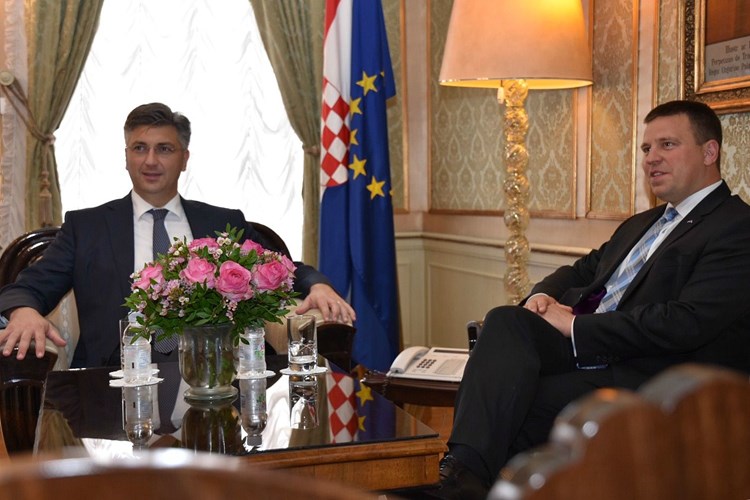- Published: 25.07.2017.
PM Plenkovic says wants Croatia to reach Estonia's digitisation level
Estonia has made great headway in digital economy and Croatia is striving for that level of accomplishment, Prime Minister Andrej Plenkovic said on Tuesday after he met his visiting Estonian counterpart Juri Ratas.
Ratas arrived in Zagreb to present the programme of Estonia for its current six-month presidency over the European Union, and to get acquainted with Croatia's expectations of the Estonian EU chairmanship.
This Baltic country, which joined the EU in 2004, provides all of its 1.3 million citizens with opportunities to perform all administrative activities with the authorities on the Internet. Every Estonian, irrespective of their location, has a state issued digital identity.
For instance, Estonia has electronic voting in which voters use a trusted electronic ID to vote in elections. Furthermore, the government does not any longer release print material from its sessions. The lion's share of the capital of Tallinn is covered by the free wifi Internet.
Estonia offers an e-Residency model whereby e-Residents can establish and manage a location-independent company online from anywhere in the world.
Experts estimate that these achievements in digitisation lift annual GDP by 2%.
The priority of the Estonian presidency over the EU is digital Europe and free movement of data as well as an inclusive and sustainable Europe.
One of our main goals is digital Europe. We are sure that the development of digitised society and e-government paves the way for economic growth and improved efficiency, Ratas said at a news conference in Zagreb.
Estonia is planning to organise 45 events in connection with digital society during its EU presidency.
In connection with this topic, Plenkovic said Croatia would try to make use of the European digital agenda and also national funds and funds from the European Commission and the World Bank for that purpose.
Plenkovic and Ratas discussed bilateral economic cooperation, diplomatic relations, migrations, the EU enlargement and cooperation within NATO.
It is vital to preserve the unity and determination of the EU and show that the 27 EU members are united and ready to make tough decisions, Ratas said.
Text: Hina
